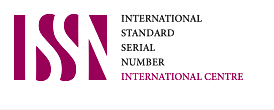PSYCHOLOGICAL WELL-BEING OF DISABILITY EMPLOYMENTS
Abstract
Keywords
Full Text:
PDFReferences
Angela, F. (2021). Gambaran psychological well-being pada penyandang disabilitas perempuan yang bekerja. Doctoral Dissertation, Widya Mandala Surabaya Catholic University.
Aulia, S. & Panjaitan, R. U. (2019). Kesejahteraan Psikologis dan Tingkat Stres pada Mahasiswa Tingkat Akhir. Jurnal Keperawatan Jiwa, 7(2), 127-134. Doi: 10.26714/jkj.7.2.2019.127-134
Badan Pusat Statistik (BPS). (2022). Pekerja Dengan Disabilitas di RI Menurun. Katadata Media Network.
Gunawan, A., & Yuliana. (2013). Komunikasi Interpersonal Dan Fasilitas Kesehatan: Pengaruhnya Terhadap Kepercayaan, Loyalitas dan WOM Rumah Sakit. Journal of Business and Entrepreneurship, 1(3).
Fridayanti, F., Kardinah, N., & Fitri, T. J. N. (2019). Peran workplace well-being terhadap mental health: Studi pada karyawan disabilitas. Psympathic: Jurnal Ilmiah, 6(2), 191-200. Doi: 10.15575/psy. v6i2.5754
Jayervand, H., Ahdi, H., Mazaheri, M., Talebi, H., & Manshaee, Q. (2013). Prediction of Suicide Ideation Based on Psychological well-being and Religious Spiritual Deterimans Among the Individuals with Attempted Sucicide.
Khusen, V., & Suryadi, D. (2021). The Relationship Between Perceived Social Support and the Psychological Well-Being of Pregnant Women Expecting Their First Child (Primigravida). In International Conference on Economics, Business, Social, and Humanities (ICEBSH 2021) 8 Agust 2021, 548-554). Doi: 10.2991/assehr.k.210805.086
Mégret, F. (2008). The disabilities convention: Human rights of persons with disabilities or disability rights? Human Rights Quarterly, 30(2), 494-516.
Ningsih, F., & Susanti, S. S. (2019). Psychological Well-Being Pada Penyandang Disabilitas Fisik. Jurnal Imiah Mahasiswa Fakultas Keperawatan Universitas Syah Kuala, 4 (1), 87 –94.
Prasetya. (2022). Penyandang Disabilitas di Tempat Kerja: Kondisi dan Tantangannya di Indonesia Sebagai Negara G20. Perkumpulan PRAKARSA.
Rahmania, R., Munir, A., & Budiman, Z. (2019). Hubungan Lokus Kendali Internal dan Dukungan Sosial Dengan Kesejahteraan Psikologis pada Penyandang Disabilitas di Aceh Tengah. Tabularasa: Jurnal Ilmiah Magister Psikologi, 1(1), 49-58. Doi: 10.31289/tabularasa. v1i1.275
Rachmayani, D., & Ramadhani, N. (2014). Adaptasi bahasa dan budaya skala psychological well-being. Proceeding Seminar Nasional Psikologi UMS 2014, 253-268.
Ryff, C. D. (1989). Happiness is everything, or is it? Explorations on the meaning of psychological well-being. Journal of personality and social psychology, 57(6), 1069-1081. Doi: 10.1037/0022-3514.57.6.1069
Rossi, C., Bonanomi, A., & Oasi, O. (2021). Psychological wellbeing during the COVID-19 pandemic: the influence of personality traits in the Italian population. International Journal of Environmental Research and Public Health, 18(11), 5862, 1-13. Doi: 10.3390/ijerph18115862.
Roslan, S., Ahmad, N., Nabilla, N., & Ghiami, Z. (2017). Psychological well-being among postgraduate students. Acta Medica Bulgarica, 44(1), 35-41. Doi: 10.1515/amb-2017-0006.
Siswadhi, F. (2016). Analisa pengaruh kualitas pelayanan dan kinerja karyawan badan pertanahan nasional kabupaten kerinci terhadap kepuasan masyarakat. Jurnal Benefita, 1(3), 177-183. Doi: 10.22216/jbe. v1i3.720.
Subasno, Y. (2017). Masalah Disabilitas dan Sosial Kemasyarakatan: Laporan Hasil Penelitian Survey Kuantitatif Bersama Pilar Analisa Indonesia. SAPA: Jurnal Kateketik dan Pastoral, 2(1), 65-76.
Suparman, M. Y., Ninawati, N., & Setiawan, K. (2022, April). Psychological Well-Being of Chinese Indonesian College Students. Proceeding of the 3rd Tarumanagara International Conference on the Applications of Social Sciences and Humanities (TICASH 2021) 21 April 2022, 1113-1116. Doi: 10.2991/assehr.k.220404.175.
DOI: http://dx.doi.org/10.22441/biopsikososial.v7i2.21795
Refbacks
- There are currently no refbacks.
Copyright (c) 2023 Biopsikososial: Jurnal Ilmiah Psikologi Fakultas Psikologi Universitas Mercubuana Jakarta
JBUMBand its articles is licensed under a Creative Commons Attribution-ShareAlike 4.0 International License.
Tim Editorial Office
JBUMB
Fakultas Psikologi, Universitas Mercu Buana
Jalan Meruya Selatan No. 1, Kembangan, Jakarta Barat, 11650, Indonesia
Phone: +6281318855243
Email: [email protected]
Website: https://publikasi.mercubuana.ac.id/index.php/biopsikososial/index

















